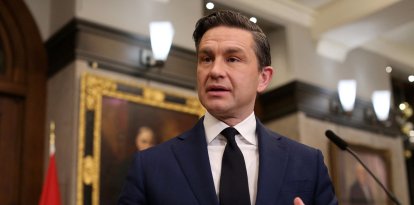Enough of price controls in Argentina: Javier Milei announces strong changes in the Ministry of Commerce
The president-elect stated that the current behavior of the government agency seems to be an "aberration," so as of December 10, it will cease to exist "in the sense that governments historically gave it."

Cordon Press
There is just a little time left until Javier Milei takes over as president of Argentina. The libertarian will receive the presidential baton on December 10 from Alberto Fernández, starting a new era in the South American country. Although he has already announced a good part of his management plan, he recently referred to the role that the Ministry of Commerce will play while he is in office.
In radio statements, Milei stated that the aforementioned organization “will not exist in the sense that governments historically gave it. It doesn't have to be doing that thing of regulating prices, it seems like an aberration to me. All the prices I can from the economy, I'm going to release. There are some that I still can't do because of the characteristics of the bombs that the Government planted."
Although some understood that the Ministry of Commerce would close its doors, the truth is that the president-elect mentioned its functions would be restructured. The libertarian brought up the topic many times and even prefaced the latest Spanish edition of the book by Robert Schuettinger and Eamonn Butler, titled “4,000 years of price and wage controls.”
“In short, price control policies are harmful because they not only postpone effective measures to control inflation in time, disorganize production and distribution, but they also create a strong social division and encourage the implementation of restrictions that threaten the political freedom of individuals,” wrote the then economic analyst in 2015.
Closure or restructuring?
According to Diana Mondino, future chancellor of the libertarian administration, the foreign trade functions carried out by the Secretariat will be absorbed by the Foreign Ministry, which she will be in charge of leading.
Therefore, the organization as such would not be closed and closure signs would not be posted on the outside of its facilities.
The expert's opinion
For Martín Litwak, Argentine lawyer specializing in estate planning and author of the book “Tax Havens and Tax Hells,” Milei's decision is a step in the right direction.
“The best Ministry of Commerce is the one that does not exist.” There should be complete freedom for individuals and companies to trade with companies and individuals from their country or another country. So, the functions that the Ministry of Commerce is carrying out today to limit that trade are not good,” he told Voz Media.
However, he clarified that it remains to be seen which functions of the Secretariat will remain the same. “If they are going to be eliminated, nothing to criticize. If the permits and restrictions that exist today are going to be transferred to the scope of another ministry and will remain more or less the same, there is not much to celebrate,” he added.
Eugenio Marí, chief economist of the Libertad y Progreso foundation and former advisor to the Ministry of Commerce during the Government of Mauricio Macri (2015-2019), also spoke with Voz Media and analyzed the future of the aforementioned government agency.
“Milei gave a message of the direction his Government is going to take. When he talks about closing the Ministry of Commerce, I think he is trying to express that he is going to eliminate the part that is in charge of price controls and inspection. There are more than 10 different programs, through which the National Government sets, controls and regulates prices. All of this should not exist in a free economy, so it is part of the reforms that are coming in Argentina,” he said.
Regarding the ideal role of the Secretariat, Marí explained that it is important to work on consumer defense, competition defense and commercial loyalty (guarantee minimum safety regulations). However, he clarified that these functions may or may not be within the responsibilities of this portfolio.
“That these functions exist or should continue to exist does not necessarily mean that they have to be under an organization called the Ministry of Commerce, that is almost anecdotal. The relevant thing is that modern states carry out these practices, so there must be some entity that executes them,” stated the economist.
RECOMMENDATION





















